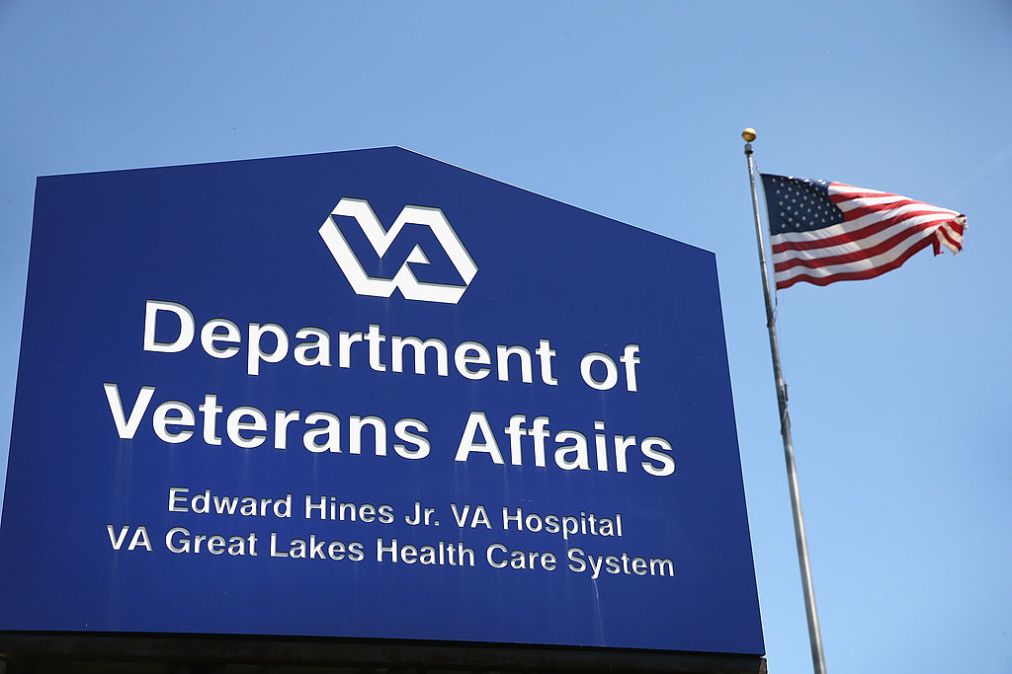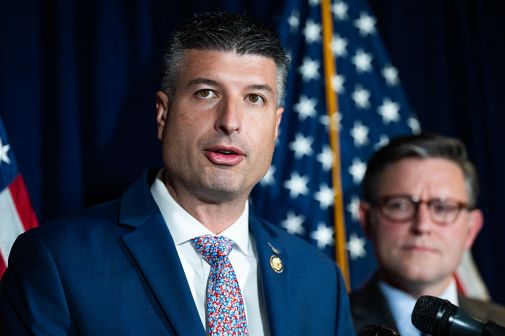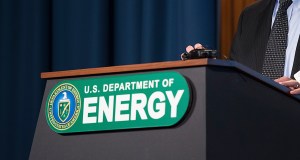VA health tech leader: AI can save veterans from ‘a lot of pain and suffering’

Technologically speaking, society has come a long way since an old lady fell down in her house and couldn’t get up.
The Veterans Health Administration is doing its part to put some distance between that memeable late-80s/early-90s image and the current needs of and potential solutions for the aging population it serves.
“We’re actually figuring out how to have your house be an integral part of your health,” said Joe Ronzio, deputy chief health technology officer for the VHA. By “monitoring and tracking” veterans within their homes, “analytics can feed back to you what you need to do better, or what risks you have within your own house.”
Speaking during a FedInsider webinar Tuesday, Ronzio said work on that “smart home” concept is one of many health tech projects currently in the works that is especially meaningful to him and his colleagues at the VA’s health unit. An Air Force veteran, Ronzio still serves in a reserve capacity as the medical commander for the 94th Aeromedical Staging Squadron at Dobbins Air Reserve Base in Marietta, Ga.
“We have a lot of skin in the game ourselves,” Ronzio said. “Our team is mainly veterans as well. So we’re constantly looking for those technologies that are going to enable veterans to get better care.”
The smart home technologies Ronzio pointed to Tuesday are aimed at reducing long-term care needs and some skilled nursing needs for aging veterans. The digital tracking would detect in-home falls while also providing preventative benefits. Dehydration and other activity levels could also be monitored, ensuring that veterans are “drinking enough [and] making sure you’re being active enough,” he said.
The VHA is also experimenting with various forms of artificial intelligence, including a deep learning model that digests radiological imaging. The co-computing system analyzes images to offer early detection of skin cancers and other types of malformations or abnormalities, Ronzio said.
“Then the radiologist or ER doc can actually quickly identify the problem and quickly get to treatment,” he added. Combining the forces of this type of model — which boasts a “first-pass accuracy” rate over 92% — with the careful eyes of a physician has the effect of saving “a lot of pain and suffering for an individual,” he said.
Ronzio noted that there are several medical devices going through Food and Drug Administration approval that have deep learning algorithms built into X-ray machines. The key for devices like that, and others that leverage deep learning models, is to have “a lot of data to come to a conclusion and to train it to do a simple task,” he said.
There is a risk of a co-computing model to “go off and be a little bit creative,” Ronzio noted, leading to some burdens for providers. But that potential downside is mitigated by the technology’s potential to build hyper-specific models without needing an engineer or physician during that development phase — but later coming in to ensure quality patient care.
“After a model gets enough data,” he said, it “starts to understand something, that it can actually work with health care and the patient to hopefully make their life easier, ease pain and suffering and potentially detect things that we have not even been able to detect or identify yet.”
The VHA has also implemented some forms of generative AI for use in administrative tasks, such as writing a performance work statement or a capability statement for an acquisition. But Ronzio and his colleagues are hyper-aware of the possibility of AI delusions and the insertion of inaccurate citations. For the VA’s health work especially, the stakes couldn’t be clearer.
“In health care, we cannot have that type of delusion going on with, say, provider notes, with patient procedures, with medication administration,” Ronzio said. “So that’s where we have to be cautious about implementing in the future inside of the health care setting.”
Despite those potential pitfalls, Ronzio sees a bright future for AI and the role it can play in veterans’ health care. The VA’s National Artificial Intelligence Institute is “moving things along” for the VHA, he said, delivering actionable research as well as the development of critical programs. There’s a hospital simulation in Orlando that allows Ronzio and others to “kick the tires on any of our technologies.” It’s his job to identify those technologies that already exist and take them to the next level with AI, with the goal of saving time and resources and improving the quality of care for veterans, he added.
“We’re not quite at a point of predicting disease and predicting massive health concerns yet,” Ronzio said. “But it’s going to be those subtle margins. We do want to get predictive, and that’s where some of the generative AI models might be able to help us in the distant future.”






